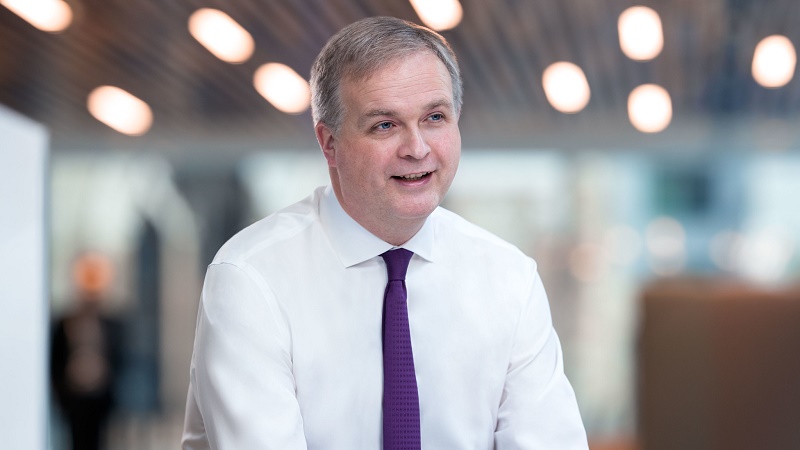As Western governments grapple with the need for increased spending on infrastructure, at a time of record budget deficits, the need for private investment in the nation’s building blocks has long been an opportunity for investors.
In the UK, infrastructure investment trusts can play a part in addressing the issue, with trusts such as BBGI and International Public Partnerships (INPP) growing to become FTSE 250 constituents.
Chris Morgan, senior investment director at Amber Infrastructure (Investment Adviser to INPP), highlights decarbonisation, demographic changes, and digitalisation as some of the key trends that will prompt further spending on infrastructure.
Climate change and decarbonisation in particular continue to be big drivers of government infrastructure spending.
“There are various different megatrends that are creating and driving the need for governments to spend money on infrastructure, and we think we’re well positioned across the piece,” Morgan says.
Thames Tideway
INPP focuses on lower risk investments within infrastructure, which are typically government-backed with contracted or regulated revenues.
The portfolio aims to provide investors with consistent and predictable returns while also delivering environmental and social benefits for communities and individuals that are served by the assets.
“The assets are delivering predictable cash flows over the longer term with strong levels of inflation linkage, and they’re typically backed by government,” Morgan says.
Looking forward, there is a need to ensure existing infrastructure is resilient, which can include renewing or upgrading projects currently in place.
See also: JLEN Environmental Assets rebrands to Foresight Environmental Infrastructure
As one example, the trust has backed the Thames Tideway tunnel project since 2015, with the asset expected to become operational next year.
“The Thames Tideway tunnel is one of the largest assets that we own,” Morgan says. “Ultimately, the existing sewerage system in the UK is not adequate.
“In the UK, you have a combined system where rainwater and sewage go into the same system. If it rains heavily, the infrastructure often can’t deal with it, and therefore to avoid rainwater and sewage backing up into streets and homes, it is released into rivers or tributaries across the UK.
“In terms of the River Thames specifically, there is currently around 37 million cubic meters of combined rainwater and raw sewage that’s released into the river every year, which is obviously pretty nasty.”
The tunnel is 25km in length, running from West London, where it’s around 30 meters below ground, to East London, where it is 70 meters below ground.
“Building a new super sewer underneath the existing infrastructure is a huge project. It’s effectively a gravity-fed tunnel, and when the existing sewer system would ordinarily discharge into the river, the overflow will go into the new infrastructure instead, and that’ll be channelled out for treatment in East London.
“Tideway is largely an environmental project which should help prevent around 95% of the polluting over spills that currently go into the river.”
Elsewhere, INPP also owns the cabling and infrastructure that allows offshore wind farms to transmit their electricity through to the national grid.
Under UK regulation, the firm that builds an offshore wind farm is not allowed to own both the turbines and the assets that transmit the electricity through to the grid. Instead, they have to sell the transmission asset through a formal process run by energy regulator OFGEM.
“Through those processes, we’ve acquired 11 offshore transmission assets,” Morgan adds. “In total, those assets have the capability of transmitting sufficient renewable electricity to power the equivalent of around 3.7 million homes.”
Impact of higher interest rates
Infrastructure trusts have suffered a tough period over the last few years. The sector generally struggled during the Covid pandemic, with assets such as airports and rail lying almost dormant through the course of lockdowns.
More recently, rising interest rates have impacted the sector, leading to share price discounts on infrastructure investment trusts widening over the last two years.
However, with rate cuts now initiated by the Bank of England, investors are taking a renewed look at some of the sectors impacted by higher interest rates. Peel Hunt analysts recently backed infrastructure trusts as a sector primed to benefit from lower interest rates, with cuts a “catalyst” for discounts to narrow.
Amber Infrastructure’s Morgan says the main impact of higher interest rates on infrastructure has been on valuations, rather than cash flows.
“If interest rates are higher, investors require a greater return, and that has an adverse impact on valuations,” Morgan says.
See also: Interest rates: Tough decisions ahead for central banks
According to data from Morningstar Direct, INPP’s share price has traded at an average discount to net asset value of 13.64% so far this year, despite its 10-year monthly average being a 6.43% premium.
The AIC Infrastructure sector currently trades at an average 15% discount to NAV.
However, with rates set to come down further in the coming year, Morgan believes current discounts could represent an attractive entry point to the asset class.
“To my mind, the discount presents an opportunity, because if you look at the current entry point for investors, and the context that the fund has been around since 2006 and has historically traded at a premium, the entry economics are attractive.
“You’re able to access what has historically been an expensive sector at a discount to historic levels.”
The trust, which has increased its dividend every year since launch, recently announced it would increase the frequency of its payouts to quarterly from semi-annually.
INPP is targeting a 3% dividend growth to 8.37p per share for the 2024 financial year.











